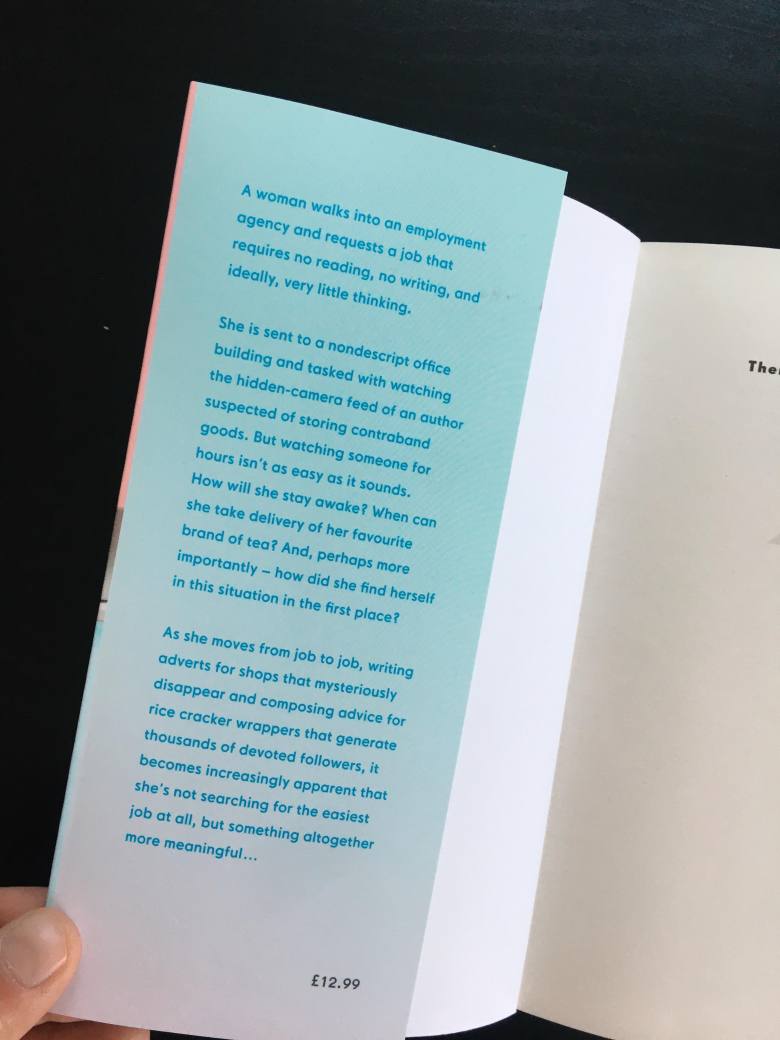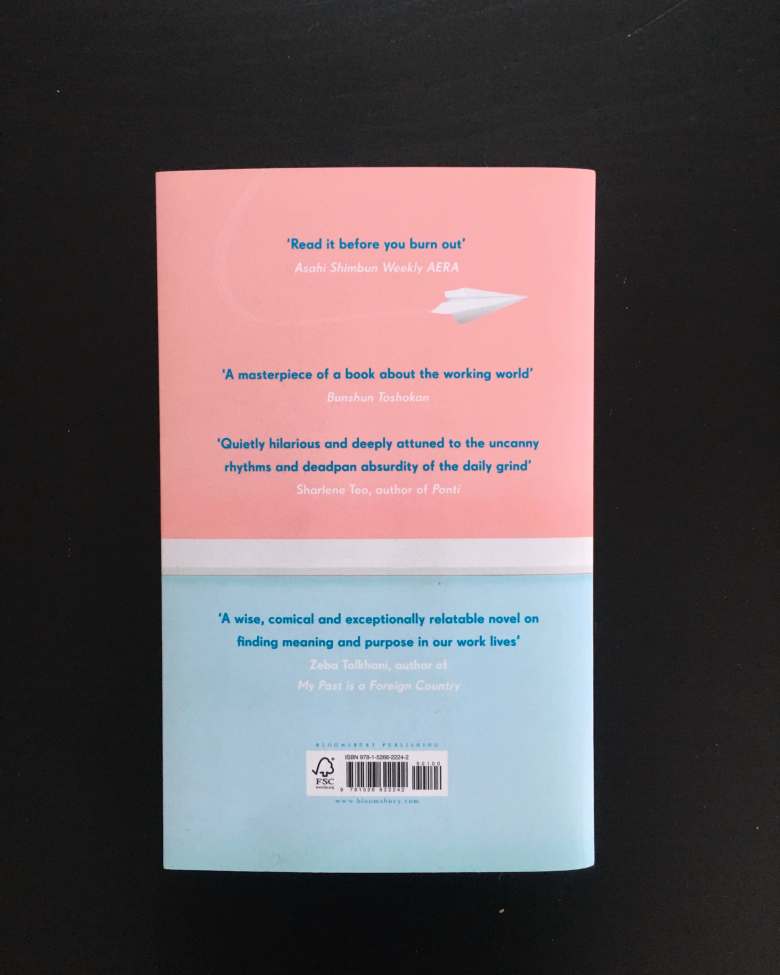
FYI: This review contains spoilers.
“The whole situation had come to be because I’d sat down one day in front of my recruiter and informed her that I wanted a job as close as possible to my house – ideally, something along the lines of sitting all day in a chair, overseeing the extraction of collagen for use in skincare products. […] I’d quit my previous job after I developed burnout syndrome, and had gone back to living with my parents in order to recuperate. […] I’d left my last job because it sucked up every scrap of energy I had until there was not a shred left, but at the same time, I sensed that hanging around doing nothing forever probably wasn’t the answer either. In short, I felt pretty confused about whether I wanted to go back to work or not, and that was why I’d come out with that line to the recruiter, which sounded like I thought the whole thing was a joke.”
This lengthy quote from one of the first pages of Kikuko Tsumura’s There’s no such thing as an easy job describes our nameless protagonist’s predicament. She needs a job because she needs the money. At the same time, she seems to live in a sort of vacuum, not wanting to risk another burnout by returning to the workforce. So she opts for jobs that don’t require extra effort, at least in her understanding. Having spent 14 years working as a medical social worker in hospitals and other facilities, she left this field of work after suffering a breakdown. Deciding that any job will do as long as it doesn’t mean much involvement — on several levels, it seems — she works in five different jobs over the course of a year.

Five jobs, five chapters, five new insights
In five chapters (one for every job) the narrator starts a new job, meets new people, and learns something new about her work and herself. If you’re expecting great philosophical insights into the mind of a mature millennial, you may be disappointed. This is a quiet book, with a quirky and at times hilarious narrator who slowly but steadily tries to reclaim her place in the world — all the while being cautious of not overstepping invisible mental boundaries.
For those who have been through episodes of mental distress, breakdowns, or mental health issues and the aftermath of coming back to the world, these stories may feel strangely familiar. I, for one, spent years in jobs that didn’t feel challenging out of fear of triggering another bout of anxiety and panic attacks. It’s also the main reason I often preferred precarious freelance jobs to ‘real’ jobs. As a writer and editor, freelance work means working from home, with no need to go to an office or interact with people. To me, the narrator is already one step further than I had been for years in that she can work in an office environment while still not feeling her best. But enough of me. Let’s get back to the book.
Apart from being quiet and thoughtful, these stories also feel like modern fairy tales, sometimes even slightly magical. Her second job, copywriting for bus advertising, certainly does. As does “The Easy Job in the Hut in the Big Forest.” We can see how much of an impact we have on our fellow humans without being aware of it in the chapter “Postering Job”. Nevertheless, while these five chapters also work as stories in themselves, it is still a coherent narrative. Only throughout the book does the magic of this tale unfold and issues that were just mentioned in one chapter become more important in another.
Let’s stay positive
As stated before, this is a quiet read, a book that to me felt like a cozy blanket on a cold and dreary day. It has this very special tone I find in a lot of contemporary Japanese literature: straight and matter-of-factly, yet also displaying a sort of innocent curiosity, enthusiasm, and/or knowledge that takes me by surprise. So if you’re looking for a quiet and thoughtful read that does not come with profound and moving worldly wisdom, but offers a sort of steady optimism, then Kikuko Tsumura’s There’s no such thing as an easy job might be for you 🙂

SPOILER ALERT:
Let’s close this short review with the last paragraph of the book because it captures its overall tone perfectly:
“The time had come to embrace the ups and downs again. I had no way of knowing what pitfalls might be lying in wait for me, but what I’d discovered doing five jobs in such a short time span was this: the same is true of everything. You never knew what was going to happen, whatever you did. You just had to give it your all, and hope for the best. Hope like anything it would turn out alright.”
